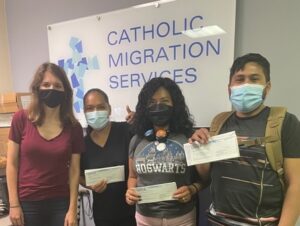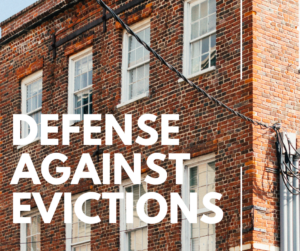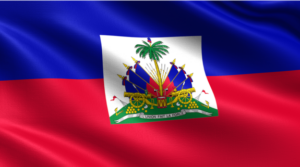by Natasha B. | Apr 18, 2022 | Immigration, Press Releases and Statements, Temporary Protected Status (TPS)
On March 2, 2022, the Secretary of the Department of Homeland Security (DHS) announced the extension and redesignation of South Sudan for Temporary Protected Status (TPS) through November 3, 2023.
What is Temporary Protected Status (TPS)?
The Secretary of the Department of Homeland Security (DHS) may designate a foreign country for Temporary Protected Status (TPS) due to conditions in the country that temporarily prevent the country’s nationals from returning safely, or in certain circumstances, where the country is unable to handle the return of its nationals adequately. United States Citizenship and Immigration Services (USCIS) may grant TPS to eligible nationals of certain countries (or parts of countries), who are already in the United States. Eligible individuals without nationality who last resided in the designated country may also be granted TPS.
What does this announcement mean?
The extension of TPS for South Sudan allows South Sudanese nationals (and individuals without nationality who last resided in South Sudan) who have already been granted TPS to re-register for TPS from March 3, 2022 through May 3, 2022.
The redesignation of TPS for South Sudan allows South Sudanese nationals (and individuals without nationality who last resided in South Sudan) who have continuously resided in the United States since March 1, 2022 and have had continuous physical presence in the United States since March 3, 2022 to file an initial application for TPS, as long as they meet eligibility requirements. Individuals granted TPS are not removable from the United States, can obtain an Employment Authorization Document (EAD) or work permit, Social Security Number, and may be granted travel authorization.
When can I apply for TPS?
Those who already have TPS, must re-register from March 3, 2022 through May 3, 2022. Those applying for TPS for the first time have from March 3, 2022 to November 3, 2023 to do so.
How do I apply?
We recommend consulting a lawyer to determine if you are eligible to apply for TPS and to learn more about what documents you need to include in your application.
If you have questions, please call Catholic Migration Services at (718) 236-3000, extension 2015.
For additional information, you can also contact Action NYC at (800) 354-0365 – Monday through Friday, between 9:00 a.m. and 6:00 p.m. – to connect with City-funded, free and safe immigration legal help.
Click here to download this update as a PDF: Immigration Update Pertaining to South Sudan and the Extension and Redesignation for Temporary Protected Status (TPS)
by Natasha B. | Apr 18, 2022 | Deferred Action for Childhood Arrivals (DACA), Immigration, Press Releases and Statements
On July 16, 2021, a federal judge in Texas issued an order declaring that DACA is an illegal policy. While that decision is being appealed, USCIS is still accepting initial and renewal DACA applications. USCIS will continue to process renewal applications in the usual manner. For initial applications, however, USCIS may accept initial applications, but it cannot grant initial DACA applications while the Texas judge’s order is in effect.
WHAT DOES THIS MEAN FOR ME?
Current DACA Recipients
• Current DACA Recipients can continue to apply to renew their DACA. It is recommended that you submit your renewal between 150 and 120 days of the expiration date of your current DACA.
• DACA protections and benefits continue (e.g. deportation protection and work permits)
• Renewal work permits are still valid for two years
• Renewal fee is $555 if you submit your application online and $605 if you submit it on paper.
New DACA Applicants
USCIS will accept initial applications, but it cannot and will not approve any initial applications while the judge’s order is in effect. Initial applicants must meet the following eligibility criteria:
- Were under the age of 31 as of June 15, 2012;
- Came to the United States before reaching their 16th birthday;
- Have continuously resided in the United States since June 15, 2007, up to the present time;
- Were physically present in the United States on June 15, 2012, and at the time of making their request for consideration of deferred action with USCIS;
- Had no lawful immigration status on June 15, 2012;
- Are currently in school, have graduated or obtained a certificate of completion from high school, have obtained a general education development (GED) certificate (or other State-authorized exam in the United States), or are an honorably discharged veteran of the Coast Guard or Armed Forces of the United States; and
- Have not been convicted of a felony, significant misdemeanor, three or more other misdemeanors, and do not otherwise pose a threat to national security or public safety.
Even if a first-time applicant meets these criteria, USCIS cannot approve the application at this time. Speak with an experienced immigration law practitioner before submitting an initial DACA application.
ADVANCE PAROLE
- Advance Parole applications for humanitarian, education, or employment purposes will be accepted for people with DACA.
- IMPORTANT: Being granted Advance Parole does not guarantee that you will be allowed to reenter the U.S. It is important that you speak with an immigration attorney or Department of Justice Accredited Representative to understand your situation BEFORE traveling outside of the U.S.
- For additional information, visit https://www.uscis.gov/DACA
FREE LEGAL HELP MAY BE AVAILABLE
All DACA eligible individuals should consult with a legal service provider for information about applying for DACA, renewing their existing DACA and/or getting screened for eligibility for other, more permanent immigration benefits. To make an appointment with Catholic Migration Services for free legal assistance, please call our office Monday through Friday between 9:00 a.m. and 5:00 p.m. at (718) 236-3000 (Brooklyn office) or (347) 472-3500 (Queens office). For additional information and free legal advice, you can also contact 311 and ask for “Action NYC”.
Click here to download this update as a PDF: Know Your Rights – DACA Update
by Natasha B. | Apr 6, 2022 | Legal Services, More News, News, Workers' Rights
 Last year, Catholic Migration Services’ employment program collected over $500,000.00 in unpaid wages for low-wage workers in the domestic, construction, restaurant and many other industries. This money was a lifeline to families coping with the economic fallout of the pandemic. This was especially true for immigrant workers who were not eligible for any state or federal pandemic aid.
Last year, Catholic Migration Services’ employment program collected over $500,000.00 in unpaid wages for low-wage workers in the domestic, construction, restaurant and many other industries. This money was a lifeline to families coping with the economic fallout of the pandemic. This was especially true for immigrant workers who were not eligible for any state or federal pandemic aid.
CMS efforts included recovering unpaid wages for essential workers such as delivery workers, home health aides, and supermarket employees who continued to work throughout the pandemic. While these employees were publicly lauded for risking their health to deliver much-needed food, supplies and care to New Yorkers, they suffered exploitation and abuse from their employers. Delivery workers risked their lives traversing through NYC neighborhoods to deliver food to homebound New Yorkers. These workers were met on pay day with empty pockets and vague excuses from their employers. Domestic workers worked around the clock, often sheltering in place in the homes of their employers, and were paid meager, exploitative wages or fired for taking sick leave. One CMS client, a single mom with three young children, was unlawfully fired for taking sick leave to recover from COVID-19. With our advocates assistance, this mom was able to recover her lost wages and “the money went straight to pay back rent and buy groceries for my babies.”
One of our greatest victories was on behalf of Roberto Moran, Mauricia Aviles, and Yazmin Aviles, three low-wage workers at the Flushing restaurant, King of Empanada. These workers were paid less than the minimum wage and compelled to work over sixty hours per week without proper overtime pay. Managing Attorney Alice Davis and co-counsel Wilmer Hale, LLLC. filed a federal lawsuit on their behalf which resulted in a settlement of $40,000.00. Mauricia Aviles commented, “We are so thankful to have received these hard-earned wages now after a really hard year and a half. Our goal is to save this money in case of another emergency.”
by Natasha B. | Apr 6, 2022 | Legal Services, More News, News, Tenant Advocacy
 Catholic Migration Services was retained by several tenants living in the same building to defend them against unwarranted eviction cases brought by their landlord. After a few years of fierce litigation, our tenant advocacy team settled the case on behalf of the tenants. The sizable settlement resulted in over $300,000.00 in benefits to the tenants including rent waivers and lump sum payouts. Although the tenants agreed to move out of the building in exchange for the financial benefits, each found alternative affordable housing before moving out. Two tenants were able to remain in their apartments for several months after the settled on move-out date to allow them to find affordable and safe homes.
Catholic Migration Services was retained by several tenants living in the same building to defend them against unwarranted eviction cases brought by their landlord. After a few years of fierce litigation, our tenant advocacy team settled the case on behalf of the tenants. The sizable settlement resulted in over $300,000.00 in benefits to the tenants including rent waivers and lump sum payouts. Although the tenants agreed to move out of the building in exchange for the financial benefits, each found alternative affordable housing before moving out. Two tenants were able to remain in their apartments for several months after the settled on move-out date to allow them to find affordable and safe homes.
by Natasha B. | Apr 6, 2022 | Asylum and Humanitarian Relief, Immigration, Legal Services, More News, News
 Jean*, a candidate for local office in Haiti, fled his homeland after enduring persecution for his political views. After fleeing Haiti, he lived in Brazil for several years, where he met and married Marie*. The couple soon had a child. In Brazil, the family faced racism and xenophobia which forced them to flee again, this time to the United States.
Jean*, a candidate for local office in Haiti, fled his homeland after enduring persecution for his political views. After fleeing Haiti, he lived in Brazil for several years, where he met and married Marie*. The couple soon had a child. In Brazil, the family faced racism and xenophobia which forced them to flee again, this time to the United States.
When Jean and his family arrived at the U.S. border, they were separated. Jean was held in an immigration detention center for several months. He was later released on bond and reunited with his wife and child in New York City where they continued the next steps to safely seek asylum with the assistance of Catholic Migration Services.
CMS advocates helped the family gather and submit a thorough packet of evidence supporting their asylum applications. We then worked with Congressman Hakeem Jeffries’ office to fix a United States Citizenship and Immigration Services (USCIS) administrative error. The correction allowed us to secure an appointment for the family to take their biometrics, a crucial step before asylum could be granted. Since this family’s case was repeatedly postponed by the immigration court, CMS persistently negotiated with U.S. Immigration and Customs Enforcement (ICE) for their non-opposition to a grant of asylum and filed a motion asking the immigration judge to grant the case based on the paper evidence. The immigration judge granted asylum, and now the family is on a path to citizenship.
*We have changed the names of the clients to protect their privacy.





